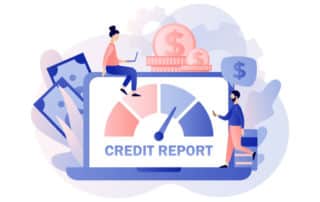
Understanding Bankruptcy Reorganization Plans
Two types of bankruptcies exist which people and businesses with overwhelming debt. The first type of bankruptcy is a Chapter 7 liquidation. It exists for individuals and companies that do not have the means to repay their creditors. The second type of bankruptcy allows people and businesses with insufficient disposable income to restructure their debts with a reorganization plan. Essentially, it is a repayment plan that a debtor must propose which pays their creditors.
The Four Reorganization Bankruptcy Chapters
Depending on the appropriate circumstances, individuals, businesses, farmers, and even municipalities may choose to reorganize their debts by filing either a Chapter 9, Chapter 11, Chapter 12, or Chapter 13.
Chapter 9: Municipalities
Chapter 9 is reserved solely for municipalities and governmental units, such as utility services and taxing districts. Chapter 9 plans and how they are approved is comparable to Chapter 11 bankruptcy. The Debtor in Chapter 9 must submit a reorganization plan to the bankruptcy court, and taxpayers and creditors may file objections to the plan.
Chapter 11: Businesses and Individuals
Chapter 11 is widely known for assisting corporations from shuttering their doors. Filing a Chapter 11 bankruptcy can be very expensive and seldomly filed by small businesses and individuals that debts exceed the Section 109 Chapter 13 debt limit.
Chapter 11 creditors frequently work with debtors to assess the debtor’s financial health to determine the best way to tackle the debtor’s debt. Typically this requires renegotiating loan terms, which is an essential part of the plan.
At the beginning of a Chapter 11 case, the debtor and creditors look carefully at the business and make decisions regarding the following:
- possible change leadership;
- liquidate underperforming parts of the business, or
- reorganize aspects of the company to increase efficiency.
The debtor must then proposes a reorganization plan for paying its creditors. The bankruptcy court must approve a Chapter 11 plan as well as each creditor who is owed money. If a chapter 11 debtor is unable to propose a confirmable plan, creditors may offer a plan. A confirmed Chapter 11 plan terms may last for many years.
Chapter 12: Farms and Fishing Operations
This chapter is for businesses that are involved in farming or fishing.
Procedurally a Chapter 12 is similar to a Chapter 13 case except that Chapter 12 bankruptcy allows for additional flexibility because of the seasonal nature of farming and fishing enterprises.
A Chapter 12 plan must be proposed within 90 days after filing the bankruptcy petition. Unlike the Chapter 13 plan requirement for monthly payments, a Chapter 12 plan may allow seasonal payments. The Chapter 12 plan may also allow for cram down secured debt such as homes and farmland, as well as allowing for payments on these restructured secured debts to extend past the 5-year plan.
Chapter 13: Individuals and Couples
Chapter 13 allows single or married people (businesses may not file under this chapter) to pay disposable income (your net amount after paying reasonable and necessary living expenses) into a reorganization plan lasting from three to five years.
If your household income is more than the average for your state, this is referred to as the median income; you must propose a 60-month plan. If your income is under the median income for your state, you may present a 36-month plan unless a 60-month plan is necessary to accomplish your goal. You can find the median income figures here.
Debt priority in Chapter 13
Bankruptcy code section 521 specifies a higher priority for some debts and requires the chapter 13 plan to pay these debts in full to be confirmed. Claims afforded priority status include:
- recent federal and state income tax debts; and
- arrears on child support and alimony.
Other debts, such as unsecured credit cards and medical bills, are labeled as general unsecured debts and are paid a pro rata share of the Chapter 13 plan’s unsecured pot. These debts receive disbursements from the Trustee if there is any disposable income once your priority claims receive payment. Typically, your unsecured creditors receive pennies on the dollar. The remaining unsecured debts get wiped out once your case is completed.
Chapter 13 Plan Can Make a Secured Debt More Affordable
A benefit of a Chapter 13 bankruptcy is the ability to cram down your a secured debt (except the first mortgage on your principal residence or a car purchased within 910 days of filing the bankruptcy). The way cram down work is if the property that secures the debt is valued at less than what is owed, Chapter 13 allows you to pay the property’s actual value (including interest at 2 points above the prime rate). Debtors can potentially save thousands.
Cram downs are not possible on the first mortgage on your primary residence or on automobile loans, which were acquired less than 910 days before filing your case. The only downside to a Chapter 13 cram down is that the debt must be pay off within the 3 to 5-year plan. Typically a debtor will be able to cram down a rental property with the rents received throughout the chapter 13 plan.
While you cannot cram down the first mortgage on your primary residence, you may strip off 2nd or 3rd mortgages (reclassify these mortgages as unsecured) if there is no equity on the property after your first mortgage.
Contact a Miami Bankruptcy Lawyer to Discuss Bankruptcy Reorganization
If you need assistance Understanding Bankruptcy Reorganization Plans work, contact a Miami Bankruptcy Lawyer today for a FREE CONSULTATION.
Consultations Available At:
Consultations Available At:




